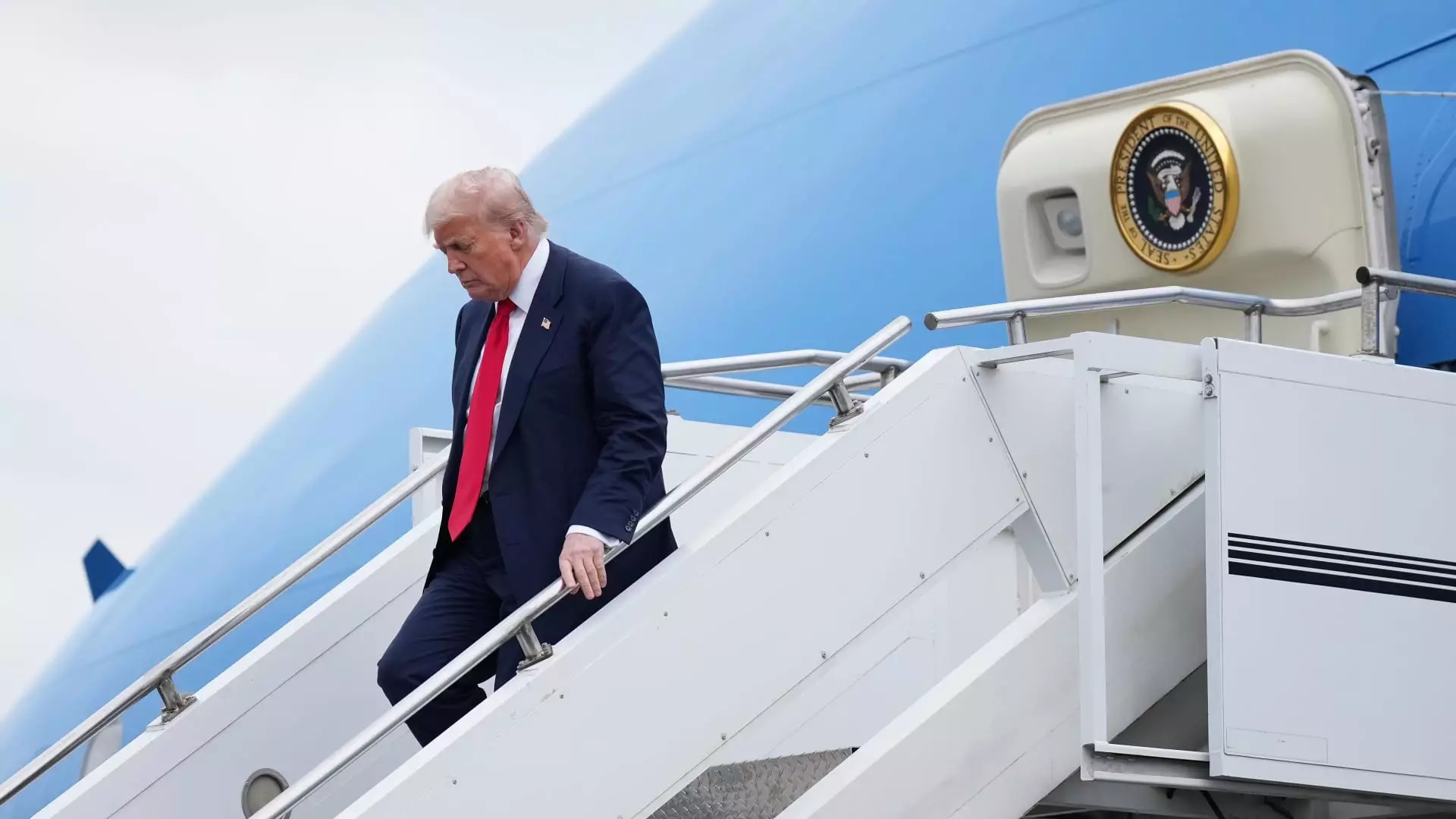The upcoming meeting between Ursula von der Leyen and Donald Trump epitomizes the fragile dance of diplomacy in a geopolitically charged climate. At its core, this encounter is not merely about economic numbers or tariffs; it embodies a battle for influence, sovereignty, and economic stability. While the headlines emphasize the threat of tariffs and trade deals, beneath these superficial negotiations lies a deeper contest: who will structure the rules that govern international commerce in the coming years?
From a pragmatic yet skeptical perspective, the push for a swift agreement appears motivated less by genuine cooperation and more by the fear of economic fallout. The EU, with its complex regulatory landscape, faces the peril of capitulating to American demands, potentially sacrificing its values, environmental standards, and digital sovereignty for a short-term economic respite. Conversely, Trump’s bullish stance on tariffs signifies a broader strategy to reassert American dominance in global trade, often at the expense of multilateralism. This power struggle underscores a broader societal debate—are these negotiations truly about mutual benefit, or are they attempts by major powers to recalibrate influence on their own terms?
Furthermore, the timing of these talks, positioned just before the imposition of a 30% tariff, reveals a strategic maneuver to avoid economic chaos. But are these negotiations genuinely aimed at establishing a fair framework, or do they serve as a façade for the U.S. to leverage its economic muscle and weaken the EU’s bargaining position? It’s an intricate game where each side appears willing to settle for a suboptimal deal rather than face the consequences of an escalating trade war, which could erode decades of diplomatic progress.
The illusion of compromise: Can a deal really salvage transatlantic ties?
The optimistic reports about a potential 15% tariff agreement seem, at best, a Band-Aid over a structurally flawed relationship. While it’s portrayed as a pragmatic solution—“better than nothing,” as some analysts suggest—the underlying issues extend far beyond mere numbers. This approach risks normalizing a mode of conduct where threats and ultimatums become standard negotiation tools, degrading the very foundations of international cooperation.
There is a troubling pattern of governments resorting to brinkmanship, using tariffs as leverage rather than as tools for genuine economic reform or policy alignment. If the EU agrees to a deal merely to avoid higher tariffs, it risks undermining its own regulatory standards, digital policies, and environmental commitments, kowtowing to U.S. demands for short-term gains. This scenario exemplifies a dangerous capitulation—an acceptance of a subordinate role in the global economic order, which could have long-lasting implications for multilateral institutions and the EU’s global stature.
Meanwhile, Trump’s approach reflects a broader nationalist-economic doctrine—one that prioritizes immediate gains and “America first” rhetoric over sustainable, equitable trade relationships. The U.S.-Japan deal, touted as “the largest ever,” underscores a pivot towards bilateral arrangements that circumvent traditional multilateral frameworks. Such moves threaten to fragment the global trading system, precisely when coordinated responses are most needed to address climate change, digital sovereignty, and human rights.
A far cry from a stable partnership: The perilous future of transatlantic cooperation
Amidst this turmoil, one must question whether the EU’s strategic outlook is sufficiently robust to counterbalance American unilateralism. Relying on quick fixes and tentative agreements not only erodes trust but also signals a retreat from principled diplomacy. Instead of leveraging its collective strength as a market of nearly 500 million consumers, the EU seems poised to accept lower standards, weakened protections, and diminished influence in global economic governance.
This situation underscores an inconvenient truth: in the current geopolitical climate, economic diplomacy is increasingly shaped by power politics than mutual interests. The EU must recognize that capitulating to the U.S.’s demands risks diluting its core values—environmental sustainability, digital rights, social protections—in exchange for fleeting economic relief. If the EU continues down this path, it undermines the very foundation of a rules-based international order, risking a future where economic might trumps democratic values.
Ultimately, the transatlantic relationship stands at a crossroads. Will it evolve into a genuine partnership rooted in mutual respect and shared commitments, or will it fracture under the weight of nationalist agendas and economic brinkmanship? The upcoming negotiations serve as a stark litmus test—one that could either reinforce the importance of multilateral cooperation or expose the fragility of a partnership increasingly driven by short-term calculations and power struggles.


Leave a Reply